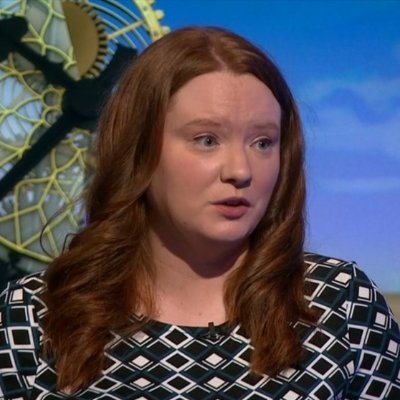 With the much-anticipated election having been and gone, attention is now focusing on what will come next in Northern Ireland. Clare Rice writes that the path out of the current stalemate is unclear, but what seems certain is that there will be a protracted period of political instability ahead, with much depending on Boris Johnson’s next move.
With the much-anticipated election having been and gone, attention is now focusing on what will come next in Northern Ireland. Clare Rice writes that the path out of the current stalemate is unclear, but what seems certain is that there will be a protracted period of political instability ahead, with much depending on Boris Johnson’s next move.
The results of the election have been widely analysed by this point, but the issue of the Northern Ireland Protocol remains an ever-evolving picture. It was anticipated that the election would be the easy part of the process, and that it would be the aftermath where the hard work would start. In the days since the election, this has proven to be the case.
It is necessary to briefly recap the Democratic Unionist Party’s (DUP) election campaign in order to contextualise the current crisis in Northern Ireland’s institutions. For the DUP, the Northern Ireland Protocol remained top of the election agenda, with all other pledges being contingent on changes being secured to this. Secondary to this was a push to consolidate the unionist vote and encourage transfers between unionist parties – not an unusual step in itself but, on this occasion, it was in an effort to prevent Sinn Féin being returned as the largest party and able to nominate to the post of First Minister. The concern was that it would see Sinn Féin in a more favourable position for pursuing its ambition of Irish reunification.
The DUP was unambiguous in its assertion that the party would not nominate to the post of deputy First Minister as a means to preventing the formation of an Executive. In the days following the election, speculation mounted that the party would also not facilitate the election of a new Speaker for the Northern Ireland Assembly. This was subsequently confirmed, and when the newly elected representatives gathered in Stormont on 13 May, the cross-community consent required for a new Speaker to be appointed was not achieved.
The party considers its representatives to have been elected with a mandate to take a hard stance on the Protocol, and that the most effective means available to exert this is to prevent a return to power-sharing in both the Assembly and the Northern Ireland Executive. In short, a choice has been presented to the Prime Minister – the Protocol or power-sharing, not both. For the DUP, the hope is that this will encourage the UK to take a stronger line in the on-going talks with the EU regarding the operation of the Protocol.
In July 2021 the party issued seven criteria that it wants any changes to meet, and has called for the Prime Minister to take action. This followed a five-point plan to undermine the operation of the Protocol, introduced under former leader, Arlene Foster, in February 2021, as well as a ‘dual agenda’ under Edwin Poots prioritising action on the Protocol.
The party made no secret of its intentions with regard to preventing the Executive forming, albeit that it was not expressly stated in the party’s manifesto. It also aligned itself much more closely with the Traditional Unionist Voice (TUV) party than it did with the Ulster Unionist Party (UUP), which is further adding to what is now an unavoidable necessity for the DUP to hold a hard line on the issue.
The most difficult aspect of the situation is that the Protocol is not something that can be negotiated away as has happened in the past when political stalemates occurred. The Protocol is a matter that is dealt with at the UK level, and talks have been in progress with the EU for some time on how to address issues with its operation.
Rumours abounded ahead of the election that legislation would be announced in the Queen’s Speech on 10 May that would enable UK ministers to override aspects of the Protocol. The night before the election, the Secretary of State for Northern Ireland stated that this would not happen. However, an ambiguous statement within the speech left the door open for possible future measures to be taken.
With the Prime Minister stepping up the rhetoric on 11 May stating that there isn’t ‘any need for drama’ and that it would be ‘crazy’ for the EU to pursue action against the UK for taking measures to protect the Belfast/Good Friday Agreement, it is currently unclear what the Prime Minister’s intentions are for how to solve the issues. The EU and senior political figures in Ireland have stated that there is a ‘landing zone’ that can be reached but that engagement and alternative solutions are needed for a mutual solution to be achieved.
There appears to be two potential options on the table for the UK should it continue on this path. The first would be to prioritise the calls of the DUP to take immediate action. This would necessitate either using Article 16 of the Protocol or introducing legislation overriding the Protocol’s requirements. The former is a formal route to change in the face of ‘serious economic, societal or environmental difficulties that are liable to persist, or to diversion of trade’ as a result of the Protocol, whereas the second is not. Neither would bring overnight change, but both would have damaging long-term consequences for UK-EU relations.
The second route is to prioritise the on-going dialogue with the EU on the Protocol with a view to finding a solution. Given the current tensions, this could also be a long process, but would likely produce the most stable outcome at the end.
The EU has been clear that the Protocol is not up for renegotiation and that dialogue must be the way forward. The UK has said that talks will continue, but with a caveat that it may still opt to pursue the first route outlined. It is anticipated that steps will advance in this direction later this week. However, in an article published ahead of visiting Northern Ireland on 16 May, the Prime Minister indicated that there is a ‘sensible landing spot’ to be found through UK-EU dialogue – a distinct softening of language ahead of meeting with the political parties.
Nothing can or will move with regard to power-sharing in Northern Ireland until the picture at the UK-level becomes clear. Boris Johnson needs to reach a firm conclusion on the route he wants to prioritise, as the lack of clarity being generated is both damaging to the progress of continuing discussions with the EU, and adding to political difficulties within Northern Ireland.
In the wake of his own electoral blows in the 2022 local elections, in addition to discord within the Conservative Party in relation to his leadership and, in part, his handling of the Protocol, it is likely that these wider dynamics will be the drivers of the decision, as opposed to pleas from any side within Northern Ireland itself.
The DUP has become backed into a corner of its own making in terms of the position it is now holding regarding Northern Ireland’s institutions; politically, it can’t back down from this easily or without firm assurances from Johnson. The party has suffered at the hands of the Prime Minister before when promises have been made, so the latter is not likely to be a desirable option. The Prime Minister is caught in a similar quandary where negotiation is the UK’s favoured path to a solution but wider political factors are encouraging a hardening rhetoric around the ongoing talks with the EU.
The path out of this situation might be unclear at present, but what is certain is that there is a protracted period of political instability ahead for Northern Ireland; as things stand, how severe that will be rests with how Boris Johnson decides his next move.
____________________
 Clare Rice (@Clare_Rice_ ) is a Research Associate at the University of Liverpool.
Clare Rice (@Clare_Rice_ ) is a Research Associate at the University of Liverpool.
Photo by K. Mitch Hodge on Unsplash.






